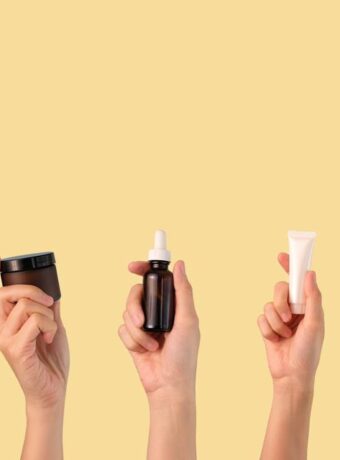Are you struggling with dry skin during the harsh winter months in Germany? The cold weather can wreak havoc on your skin, leaving it dry, flaky, and uncomfortable. But fear not, as there is a solution to your skincare woes. In this article, we will guide you on how to choose the moisturizer for dry skin in winter in Germany. We will provide you with tips and recommendations to keep your skin hydrated and glowing all season long.
Understand Your Skin Type
Before we dive into the world of moisturizers, it’s important to understand why our skin becomes dry during winter, especially in Germany. The cold temperatures and low humidity levels can strip the skin of its natural oils, leading to dryness and irritation. Additionally, indoor heating systems further contribute to the problem, as they tend to dry out the air in our homes and offices.
When it comes to finding the right moisturizer for dry skin in Germany, understanding your skin type is key. No matter if your skin is oily, dry, or somewhere in between, you need a moisturizer.
Read the labels to match your moisturizer with your skin type and age. Here’s a breakdown:
- Oily Skin: Pick water-based, non-clogging moisturizers to avoid acne. Heavy creams may make things worse.
- Dry Skin: Look for petroleum-based products like Vaseline, Aquaphor, or Eucerin. Use them at night for extra hydration.
- Normal Skin: Light, water-based moisturizers with 5-10% Cyclomethicone are ideal.
- Sensitive Skin: Winter can be tough. Choose moisturizers with soothing ingredients like aloe or chamomile, avoiding harsh fragrances and dyes.
- Aging Skin: Opt for oil-based, petroleum moisturizers for the best winter care.
Consider when and where you’re using it. Light moisturizers are great for the day, while thicker creams are perfect for nighttime.
The Key Ingredients to Look For in Moisturizers
1- Antioxidants:
Antioxidants are highly beneficial for dry skin, as they help alleviate dryness and promote overall skin health. Additionally, antioxidants are known to prevent premature aging, reduce fine lines, and improve skin texture. Therefore, it’s advisable to opt for a moisturizer rich in antioxidants if you have dry skin. Some popular antioxidants for dry skin include:
- Vitamin E: Vitamin E not only stimulates collagen production but also provides protection against UV rays.
2- Lycopene:
Lycopene, the compound responsible for the red color in certain fruits and vegetables, is renowned for its ability to protect the skin from sunburn [1]. Moreover, it enhances collagen production and minimizes skin damage. Popular sources of lycopene for dry skin include:
- Niacinamide: Niacinamide improves skin surface texture, smoothes fine lines, and fortifies the skin against further damage by establishing a ceramide barrier. It suits all skin types[2].
3- Emollients:
Emollients work to lubricate and soften the skin, available in various forms such as creams, ointments, and lotions. For individuals with dry skin, creams are recommended due to their thick consistency. Well-regarded emollients for dry skin consist of:
- Shea Butter: Research has shown that products containing shea butter can improve dry skin and eczema[3]. Shea butter aids in restoring moisture to your skin.
- Jojoba Oil: This widely used oil in cosmetics and skincare products boasts antioxidant and anti-inflammatory properties, making it an excellent choice for repairing dry skin.
4- Humectants:
Humectants draw moisture from the environment into the skin and help prevent water loss. In dry climates, humectants can even extract moisture from deeper skin layers. Therefore, for those with dry skin, it’s advisable to choose heavy, oil-based moisturizers. Keep an eye out for the following humectants when selecting a moisturizer:
- Glycerin: Glycerin is a common ingredient in skincare products, known for its ability to soften and relieve dry skin. It has also proven effective in treating atopic dermatitis. [4]
- Urea: Urea has been used in dermatology for over two decades and is effective in treating extremely dry skin and skin disorders like psoriasis.[5]
- SPF: Opt for a moisturizer with sunscreen properties to protect your skin from further sun-related damage. Look for a broad-spectrum sunscreen that shields your skin from both UVA and UVB rays.
When searching for a moisturizer for dry skin, consider these key ingredients to ensure your skin remains healthy, well-nourished, and protected.
Tips for Choosing the Right Moisturizer for Dry Skin
More Hydration, Please!
In wintertime, the air can be super dry, and your skin loses moisture faster. That’s when you need a thick and super-hydrating moisturizer to keep your skin happy and healthy. The chilly wind and the lack of moisture in the air can be rough on your skin. But a good winter moisturizer is like a shield that keeps the harsh stuff from making your skin all dry and dull.
Selecting the perfect moisturizer for dry skin can be a game-changer in your skincare routine. To ensure your skin stays hydrated and healthy, consider these essential tips.
First, opt for a moisturizer with a rich and creamy texture to provide intense hydration. Look for ingredients like hyaluronic acid, glycerin, and ceramides, as they help lock in moisture and repair your skin’s natural barrier.
Additionally, choose a fragrance-free and hypoallergenic option to avoid irritation. Always check for products labelled “non-comedogenic” to prevent clogged pores.
Lastly, consult with a dermatologist for personalized recommendations, as they can provide expert guidance tailored to your specific skin needs. Making an informed choice will keep your dry skin feeling nourished and revitalized.
Skip to: Guide to the Best Moisturizers for Dry Skin in Germany
Side-Effects of Using Face Moisturizer
While face moisturizers are generally safe for most people, some potential side effects or issues to be aware of include:
Allergic Reactions: Some individuals may be allergic to moisturizer ingredients, leading to redness, itching, and swelling.
Breakouts: Moisturizers that are too heavy or rich for your skin type can clog pores and cause breakouts or acne.
Greasiness: Moisturizers that are excessively heavy or oily may leave a greasy residue on the skin, making makeup application uncomfortable.
Irritation: Certain ingredients in moisturizers, like retinoids or alpha-hydroxy acids, can irritate sensitive skin.
Interference with Other Skincare Products: Some moisturizers may not work well with other skincare products, such as acne medications or exfoliants, which can cause irritation or other problems.
So, select a moisturizer suitable for your skin type and free from any ingredients that may lead to irritation or other issues. If you experience any side effects, discontinue use and consult a dermatologist or skincare specialist.
Additional Tips To Protect Your Skin In Winter Season
Here are some bonus tips to keep your skin radiant in winter:
- Say no to hot showers to keep your skin’s natural oils intact.
- Use a humidifier to keep indoor air moist.
- Moisturize right after your shower.
- Adjust your diet with antioxidant-rich foods and healthy fats like fish, seeds, and nuts to support your skin’s health and glow.
Conclusion
Choosing the best moisturizer for dry skin in winter in Germany doesn’t have to be a daunting task. By understanding the ingredients to look for and following expert tips, you can find a moisturizer for dry skin that will keep your skin hydrated and protected throughout the harsh winter months. Remember to take into account your specific skin needs and consult a dermatologist if necessary. Embrace the cold weather with confidence, knowing that your skin is healthy and glowing. Now you’re all set for a winter of stunning, healthy skin!
Read More:
Guide to the Best Moisturizers for Dry Skin in Germany




